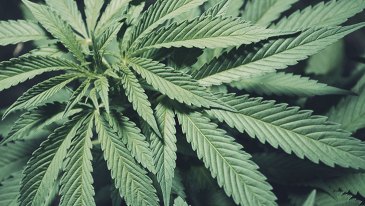Following nearly a five-year delay, the US Drug Enforcement Administration has publicly announced its intent to grant marijuana cultivation licenses to a handful of third-party applicants.
Since 1968, only the University of Mississippi has been federally licensed to engage in the growing of cannabis for FDA-approved clinical research. Scientists familiar with the product have consistently said that it is of inferior quality and fails to accurately reflect the types of marijuana varieties commercially available in legal states. Further, the University only provides scientists with the option to access herbal cigarette formulations of the plant, not concentrates, edibles, or extracts. Strains high in the compound cannabidiol (CBD) are also not currently available from the University.
In 2016, the Agency announced that it was amending its longstanding policies to allow additional parties to grow cannabis for clinical research purposes. Since that time, however, it has taken few steps to follow through on that pledge.
On May 14, the DEA acknowledged for the first time that it has provided a MOA (Memorandum of Agreement) to three applicants to “work together to facilitate the production, storage, packaging, and distribution of marijuana” in accordance with rules adopted by the agency in December 2020. NORML criticized the new regulations at that time in comments submitted to the US Federal Register, opining: “While NORML has long supported facilitating and expanding domestic clinical research efforts, we do not believe that these proposed rules, if enacted, will achieve this outcome. Rather, we believe that the adoption of these rules may further stonewall efforts to advance our scientific understanding of cannabis by unduly expanding the DEA’s authority and control over decisions that ought to be left up to health experts and scientists.”
Last year, members of the US House of Representatives advanced legislation, HR 3797: The Medical Marijuana Research Act, to facilitate clinical cannabis research by establishing a process so that authorized scientists may access flowers and other products manufactured in accordance with state-approved marijuana programs – thereby bypassing the need for researchers to access marijuana grown under a DEA license. NORML endorsed those changes. However, the bill was never taken up by the US Senate.
The DEA’s website did not provide a timeline as to when it anticipates finalizing the applicants’ grow authorizations or when it plans to take actions on the dozens of remaining applications that are still pending before the agency.


